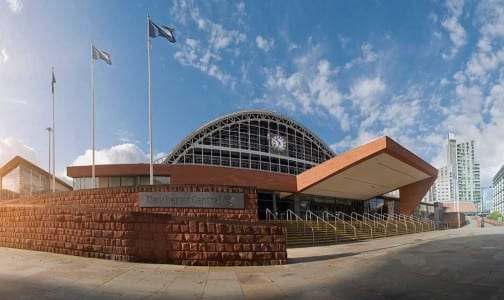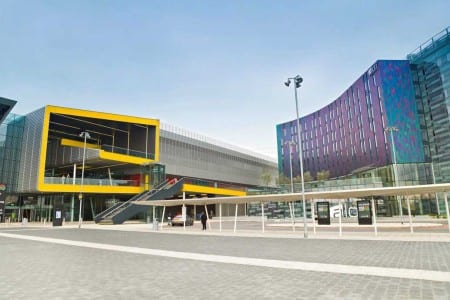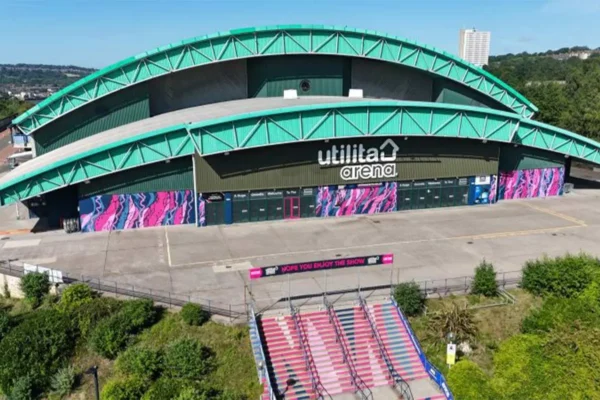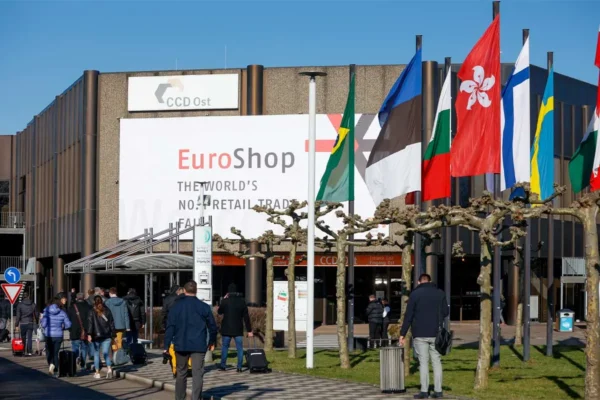Rather than promoting how much exhibition space they offer in comparison to other public assembly venues, convention centers in England highlight their city and sector strengths when competing for business.

There is no official ranking of convention centers in England. Also, not much emphasis is placed on ranking venues by their square footage, or square meters, either, according to Emma de Vadder, regional director of North America at VisitEngland – the country’s national tourism board.
“Although size is certainly a consideration, most of the time, destinations in England tend to promote their other merits, such as sector strengths and ambassadors, rather than because they are one of the largest in the country,” de Vadder explained. “Often, because of the huge draw of the particular sector strengths in each city, we find that organizers are willing to be flexible and, for example, consider using several venues instead of just the one.”
Three of the venues cited by de Vadder as being among England’s prominent convention centers – ACC Liverpool, Manchester Central and ExCeL London – all said they viewed other European cities as their main competitors. But in their home country, playing to their sector and city strengths helps these convention centers compete nationally as well as help two of them compete with the UK capital, London, which has seen increases in events and infrastructure following the 2012 Summer Olympics.
One way ACC Liverpool competes nationally is by making the most of its key sectors, which include life sciences, maritime, creative industries, education and low carbon economy. Also, attracting international organizers to ACC Liverpool is its city’s heritage and history. This includes its connection to The Beatles, and science enthusiasts may love that Liverpool pioneered railways, transatlantic steamships, municipal trams and electric trains. The venue also stands out due to its facilities and surroundings.

“Our facilities are unique in Europe; BT Convention Centre and the Echo Arena are interlinked by a central galleria that joins the two venues — the only design of its kind on this continent,” said Kerrin MacPhie, director of sales, ACC Liverpool. “We are located on the world-famous Liverpool waterfront. The venue sits alongside the Grade I listed Albert Dock complex and World Heritage Site on the eastern bank of the river Mersey.”
The venue’s facilities will further expand by 2015, with the inclusion of Exhibition Centre Liverpool, which will also be interconnected with ACC Liverpool’s other properties and on-site hotels.
About an hour, or less, from Liverpool is Manchester, home to the largest academic campus in Europe, an international airport and Manchester Central, a former Victorian train station converted into a public assembly venue. These factors help Manchester Central compete nationally, according to de Vadder. The venue also plays to its sector strengths of academia along with the corporate and business sector.
“Few venues can compete with Manchester Central’s location – at the heart of one of Europe’s most thriving cities,” said Paula Lorimer, sales director, Manchester Central. “We attract clients that are looking for excellent value for their money. Manchester Central directly supports the ROI of clients booking the venue.”
It’s possible to get the most monetary value outside of London, according to de Vadder; on the other hand, ExCeL London’s Marketing Manager Lucy Merritt said the impact of the 2012 Summer Olympics led to the UK capital becoming more cost-effective.
“London has benefitted from enormous investment both pre and post Olympics, with improvements to our transport infrastructure, increased hotel rooms and new, exciting event spaces, like Queen Elizabeth Olympic Park. As a result, London is more competitive and allows organizers to run their events more cost-effectively than ever before,” Merritt explained.

Typically attracting global, flagship conferences, according to Merritt, ExCeL London also focuses on its city’s key sectors of technology and telecommunications, life sciences, energy, finance, automotive and the creative industries. This venue too benefits from its location.
“As the UK capital, it’s very difficult for other cities to compete! London has been voted the number one European city for business for the past 22 years in a row,” added Merritt. “Due to our London location, we are able to provide organizers with a gateway to Europe and beyond, allowing them to attract high numbers of international visitors to their events.”
ExCeL London hosted several Olympic events, but it wasn’t the only venue that benefited from the games. The Olympics led to Manchester Central receiving more inquiries from event organizers, and ACC Liverpool hosted artistic gymnastics championships, in which individuals were chosen for the London Olympic team.
With the Olympics raising the profile for England as a whole, ACC Liverpool, Manchester Central and ExCeL London also stand out due to being award-winning, sustainable venues that offer personalized services. Each of these venues has their own way of tailoring services for clients and delegates; it’s usually just a matter of organizers considering which they’d prefer along with other indicators.
VisitEngland provides English destinations and their convention centers platforms and opportunities to highlight how they stand out nationally and internationally. To learn more, visit www.visitengland.com/business.






















